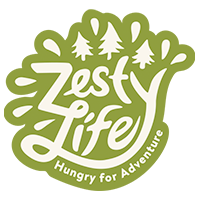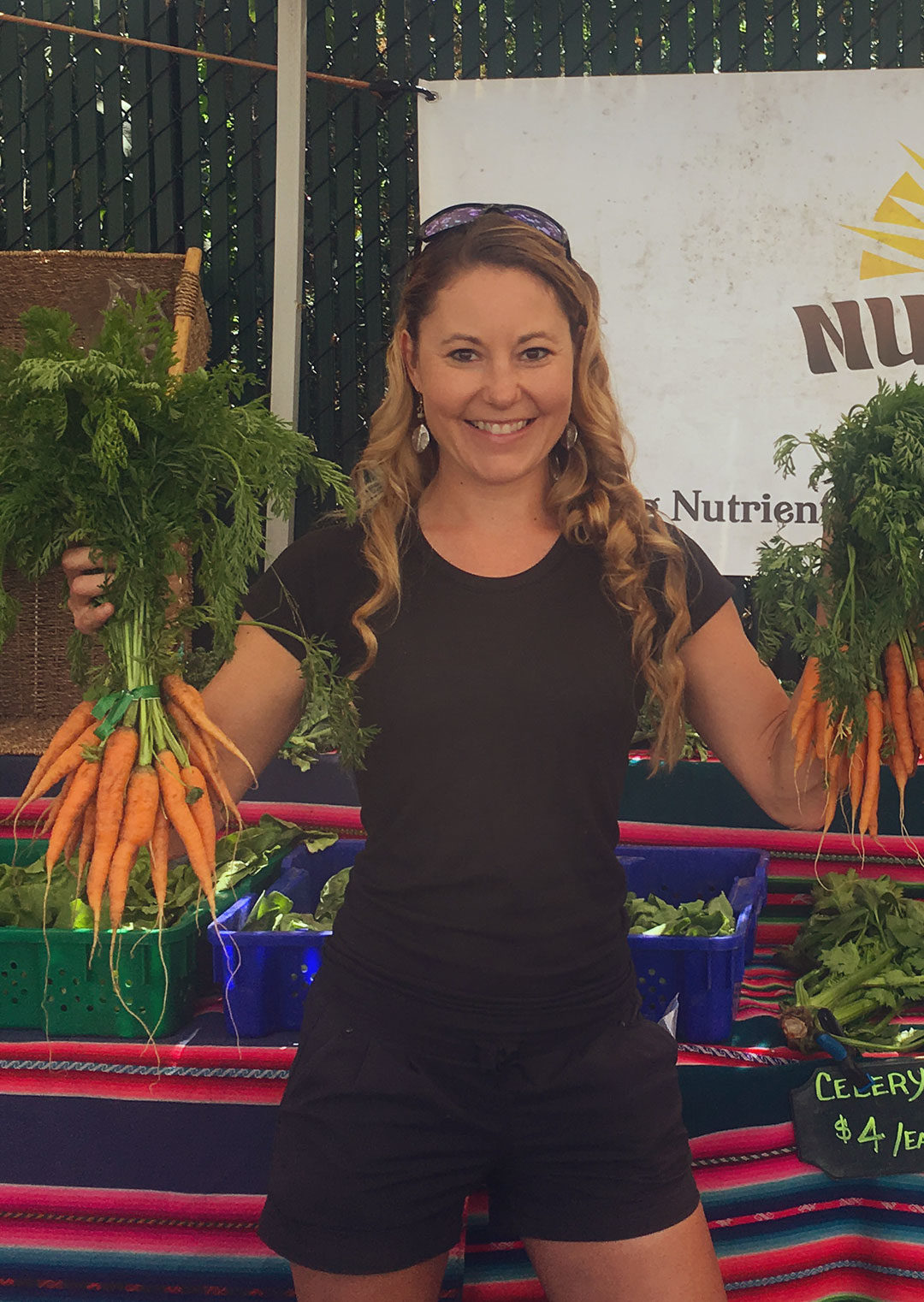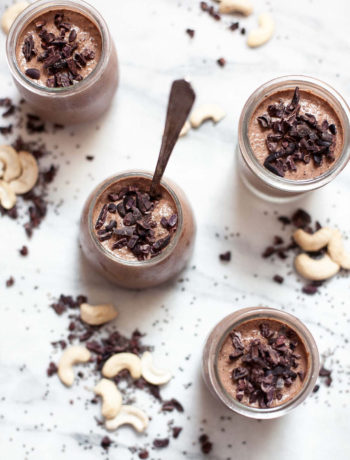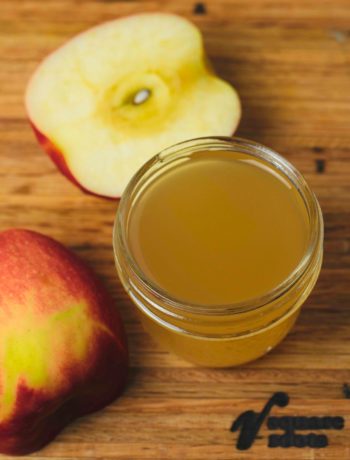A fresh, new vibrant you!
The new year is kicking off and you want to feel better, right? You’re tired of feeling tired, you’re finished with inflammation and soreness, you’re sick of getting sick, you’re done with being overweight, and you’re ready to fight aging and illness.
It often takes a medical scare for us to take a long hard look at the way we’re living life and what we’re eating. Whether it’s a friend gone too soon from cancer, a family member who suffers a heart attack, or a harsh word from our doctor about the state of our well-being, it’s never too late to change your life trajectory forever—for the better. If I could make one recommendation to people looking to improve their physical and mental well-being, it would be to move to a plant-based diet.
Plant-based living
A “plant-based diet” can be basically another way to say “vegan”, though the issue with vegan is that it’s not necessarily healthy, because all it means is you don’t eat meat and dairy. Plant-based means you eat an abundant variety of healthy, whole plant foods.
Why should I change?
Let me start by saying, eating plant-based is a lifestyle rather than a diet. Here are a few of the top reasons to switch:
- Health. Switching to eating plants will naturally help you lose excess weight, improve heart health, increase vitality, improve blood pressure, reduce diabetes risk, and ward off disease such as cancer.
- Nourishment. Switching to eating plants means you’re increasing your intake of dietary fiber, antioxidants, minerals and micronutrients.
- Mental clarity. Studies show that a plant-based diet can improve symptoms of depression, anxiety and increase one’s productivity and mental clarity.
- Improved digestion. Plant-based foods are high in dietary fibre which improves bowel movements. Additionally, the fibre binds to toxins and clears them away through regular bowel movements.
- Enhanced energy. Your body requires a certain amount of vitamins and nutrients be consumed daily for optimal performance. Eating whole plant foods, which contain a powerhouse of nutrients will keep you zesty and energized!
- Improved skin. Plant-based foods are rich in beauty-boosting phytonutrients including carotenoids and flavonoids, as well as beta-carotene found in foods such as pumpkin, apricots and kale. A plant-based diet also means you eliminate the nasty natural and added hormones found in animal products—which greatly affect your hormones and the skin.
A new mindset
Metamorphosis isn’t a month-long diet plan or a new gym membership you let expire after five visits. Take a moment to imagine your ideal self. Not your ideal body image, but your ideal self. How do you want to feel? What is your purpose? How are you thriving?
What you’re eating has a profound affect on the way you feel, think and perform.
It’s important to approach this transition with an open mind and a positive mindset. Try to think in terms of what you’ll be gaining from eating a plant-based diet instead of what you’ll be giving up. It’s not about willpower, struggle or deprivation.
What is plant-based anyway?
A whole food plant-based diet means eating whole, unrefined or minimally processed plant foods. It includes fruits, vegetables, roots, legumes, ancient grains, nuts and seeds. A plant-based meal excludes meat, dairy products, eggs, fish, refined grains and sugars.
But won’t I be SO hungry?
If all you eat is carrot sticks and salad, yes, you’re going to starve! Going plant-based means you need to eat lots of healthy whole foods. A well-rounded and filling plant-based meal can be easily created by including things such as yams, quinoa or rice, beans and lentils, avocado, coconut milk, nut butters, nuts and seeds—to name a few.
But, isn’t that a lot of carbs?
Carbs are supposed to be our main source of energy. They are the fuel that run our bodies and should comprise as much as 80% of our diet. The mistake is to label all carbs as BAD. Of course eating bread, french fries, cereal, crackers, pancakes or potato chips is not good, but these are nothing like eating carbs such as broccoli, yams, apples, quinoa or kidney beans. The complex carbohydrates found in whole plant foods like fruits, vegetables, tubers, seeds, nuts are highly beneficial and nutrient-dense.
Where am I going to get my protein?
A common misconception about plant-based diets is that they lack protein. That’s simply not true. The myth that plant-based proteins are lower quality and “incomplete” because they are “missing” amino acids has been around for decades. The average person actually consumes too much protein, according to the Centre for Disease Prevention, with most people getting nearly double the amount they actually need. And more isn’t better.
Protein is an important nutrient that helps build, maintain, and repair body tissue. Protein is abundant in beans, vegetables, nuts and seeds and there’s absolutely no reason to consume meat and dairy products for protein—unless you want the added saturated fat, cholesterol, hormones and antibiotics.
Animal agriculture interests spend billions of marketing dollars to convince society that we need animal protein, but the animal protein obsession is not only based on lies, it’s killing us, by encouraging us to gorge on factory-farmed, hormone-and pesticide-laden, low-fibre foods that are extremely high in saturated fat.
But where will I get calcium?
Did you know the calcium in dairy milk comes from the grass the cow eats? The grass absorbs calcium from the earth, which gets eaten by the cow.
The most healthful calcium sources are green leafy vegetables and legumes. Broccoli, collards, kale, brussels sprouts, mustard greens, swiss chard, and other greens are loaded with highly absorbable calcium. Conversely, research shows that dairy products have little or no benefit for bones. A 2005 review published in Pediatrics showed that drinking milk does not improve bone strength in children.
Exercise for calcium
Exercise is important for calcium as active people tend to keep calcium in their bones, while sedentary people lose calcium.
Vitamin D for calcium
Vitamin D controls your body’s use of calcium. About 15 minutes of sunlight on your skin each day normally produces all the vitamin D you need. If you get little or no sun exposure, you can get vitamin D from a supplement such as D3 drops.
The reality is that there is no reason for humans to consume cow’s milk—and so many reasons to avoid it. Milk does not naturally contain vitamin D, and dairy products are packed with fat and cholesterol and may increase the risk of health problems ranging from asthma to certain types of cancer.
But aren’t vegans iron-deficient, and isn’t plant-iron hard to absorb?
If you eat a variety of plant foods you will get ample amounts of iron. There are plenty of iron rich foods such as sweet potatoes, dates, pumpkin and pumpkin seeds, leafy greens, beans, kale, squash, spirulina, nuts, figs, prunes, artichokes.
The iron in plants is called non-heme iron. Its absorption depends on how much iron is in your body already. That is, if you are low in iron, your body absorbs more of it from the foods you eat. If you already have plenty of iron in your body, non-heme iron is less absorbable. That’s good because it means you’ll get the iron you need without overdoing it. The iron in meat is called heme iron. Its absorption does not change. You may have plenty of iron stored in your body already, but like an uninvited guest at a party, heme iron barges in whether you need it or not. As a result, many meat eaters end up with too much iron, which is dangerous because iron sparks the production of free radicals—molecules that can damage your body tissues. Think of it this way: iron rusts; that is, it oxidizes. The same chemical reaction that turns an old nail rusty can occur with the iron inside your body. In the process, iron releases free radicals that are linked to aging, cancer, and heart disease.
Okay so how can I get started?
It can be overwhelming to make change, I get it. So here are a few quick tips to get started.
- Avoid packaged food. When in doubt, choose less things that come in a package because it’s likely processed.
- Purchase 80% produce. You will not go hungry, I promise. Yams, leafy greens, avocados, apples, bananas, berries, mushrooms, snap peas, broccoli, cauliflower, brussels sprouts, beets, cucumber, etc.
- Choose ancient grains & wild rice. Instead of bread, cereal and white rice, choose quinoa, wild rice, amaranth, farro and other ancient grains.
- Legumes & Lentils. Incorporate some organic beans and lentils into your bowls, soups, stews and salads.
- Eliminate sugar. Avoid sugar in your coffee, tea or recipes. Watch out for sugar in sneaky places such as sweetened nondairy milk (buy unsweetened), some condiments like hot sauce and salsa, and stay away from packaged candy of any kind.
- Choose fruit as a snack. Have an apple, banana, some berries, or a grapefruit instead of a processed bar, crackers or bag of chips.
- Master a couple recipes. Changing the way you eat will be unfamiliar to start, but if you can just master a few simple recipes that’s a great place to begin! Try making a Zesty Life Bowl or a Breakfast Bowl
- Go easy on yourself. Progress means you’re becoming aware of what you’re eating and making whole food choices as much as you can. It’s a lifestyle that you want to last long-term so don’t give up.
- Ask questions! Shoot me an email, I’m happy to help!
No excuses.
There is no magic pill that is going to do the work for you. If you really care about your well-being, you will educate yourself, make wise choices, and not expect results to come overnight.
Resources:
The Protein Myth : https://www.pcrm.org/news/protein-myth
White Lies? Five Milk Myths Debunked : https://www.pcrm.org/news/blog/white-lies-five-milk-myths-debunked
Healthy Bones : https://www.pcrm.org/health-topics/healthy-bones
Breaking The Dairy Addiction : http://www.richroll.com/podcast/neal-barnard-2/
Risk factors for prostate cancer : http://www.cancer.ca/en/cancer-information/cancer-type/prostate/risks/?region=on
Plant-Based Diets Are Not Nutritionally Deficient : https://www.ncbi.nlm.nih.gov/pmc/articles/PMC3854817/
Related Posts





No Comments